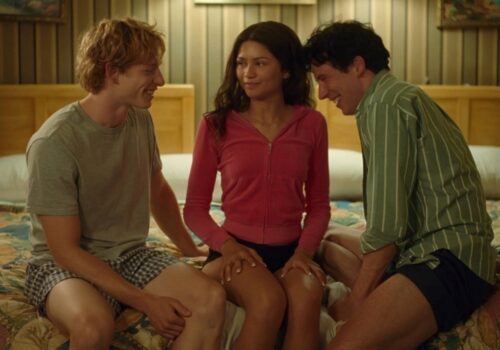Why Malaki needs to show you his vulnerable side
Words: Dylan Murphy
Photography: Ellius Grace
Words: Dylan Murphy
Photography: Ellius Grace
Dylan Murphy caught up with Malaki to discuss friendship, inspiration and imagery.
I remember exactly how I came across the music of young Dublin rapper Malaki. Having become accustomed to passive Spotify algorithms doing the heavy lifting in my music discovery, I’d become a bit of a passenger when it came to unearthing new gems. In turn I’d become a bit disillusioned with the computer generated playlist fodder that I had no connection to. So having a friend slide into my DMs with a personal recommendation that came with the same sort of urgency that precedes Malaki’s word play was a welcomed change.
The track was ‘Love Through a Cigarette’ and the confessional style had whispers not dissimilar to that of a young Loyle Carner, had he grew up in Ireland’s capital.
At this point Malaki only had one other song out, he’d seemingly come out of nowhere, but was quickly grabbing the attention of people within the Irish music bubble. Fast forward a year and I’m catching up with him over the phone following a live performance of a new single from his forthcoming EP in RTE Studio 8.
“What’s the story man, how are you?”, he says buoyantly. If it was possible to hear a smile then it was now.
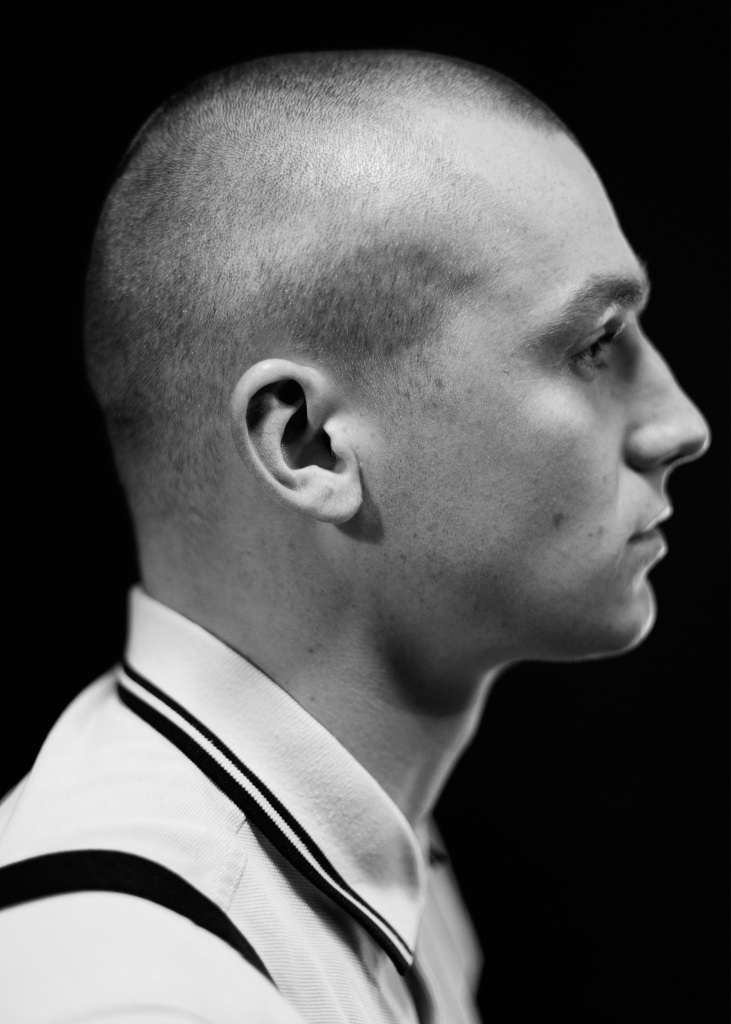
In and amongst the pleasantries was another voice – his close confident and producer on the majority of his work, Matthew Harris. He’s consistently worked with Malaki since meeting through his now ex-girlfriend whilst in school.
“It was two years ago we met right… No three?” Malaki says before there’s some deliberation and Matthew corrects him. “No two, it’s coming up on two actually.
“Matthew and the girl I dated did music with each other for a while and then when myself and the girl broke up Matthew and I got closer. He knew I did music and poetry and liked to rap so I went to his house one day starting music and it progressed from there”, Malaki explains.
“We released ‘Call Us By Our Names’, and then it got such good attention that we kind of decided we can truly make something of this.”
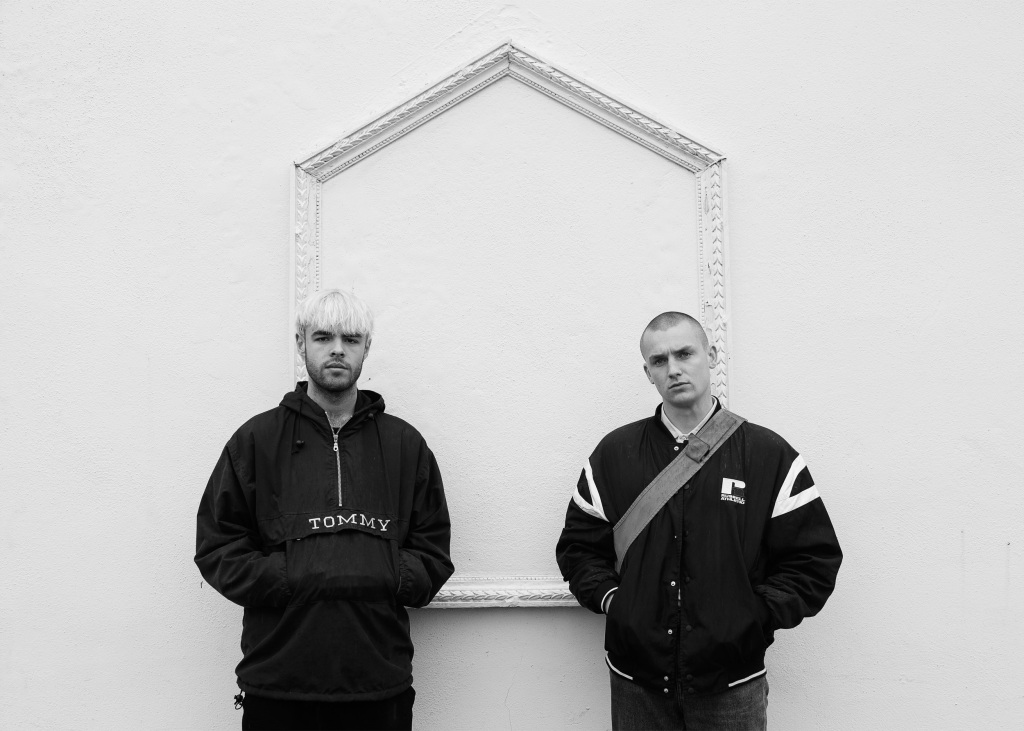
While it wasn’t immediately clear to me when I first heard Malaki’s music that he was part of a de facto duo, he’s keen to highlight their undivided support for each other as their careers start to bloom.
“We have very high hopes for each other, we are never going to underestimate ourselves”, he says confidently.
On a cursory glance, you’d be forgiven for thinking Malaki set aside an acting role in ‘This Is England’ to pursue a career in music. His stern glare and tight skin head coupled with a sleeveless vest that he’s rarely seen without suggests a hard exterior. But a listen through any of his early catalog highlights his willingness to balance dark explorations of mental health with otherworldly escapism.
“Of course I think it’s good to find a balance between the two, but I usually say what’s on my mind and I really don’t hold back.”
“Showing the vulnerability is something I’ve always taken pride in, but you also don’t want to only show what’s wrong and fucked up in the situation. You want to be able to give someone escapism through music and somewhat of a support.” he says, with the kind of conviction that suggests he’s felt that very same escape from music.
“Showing the vulnerability is something I’ve always taken pride in, but you also don’t want to only show what’s wrong and fucked up in the situation. You want to be able to give someone escapism through music…”
Malaki
“We know we are destined to get better and to get bigger so that’s why we work continuously and try out new things. Matthew’s production is getting incredibly good. I’m learning new things and how to write better and use different flows.”
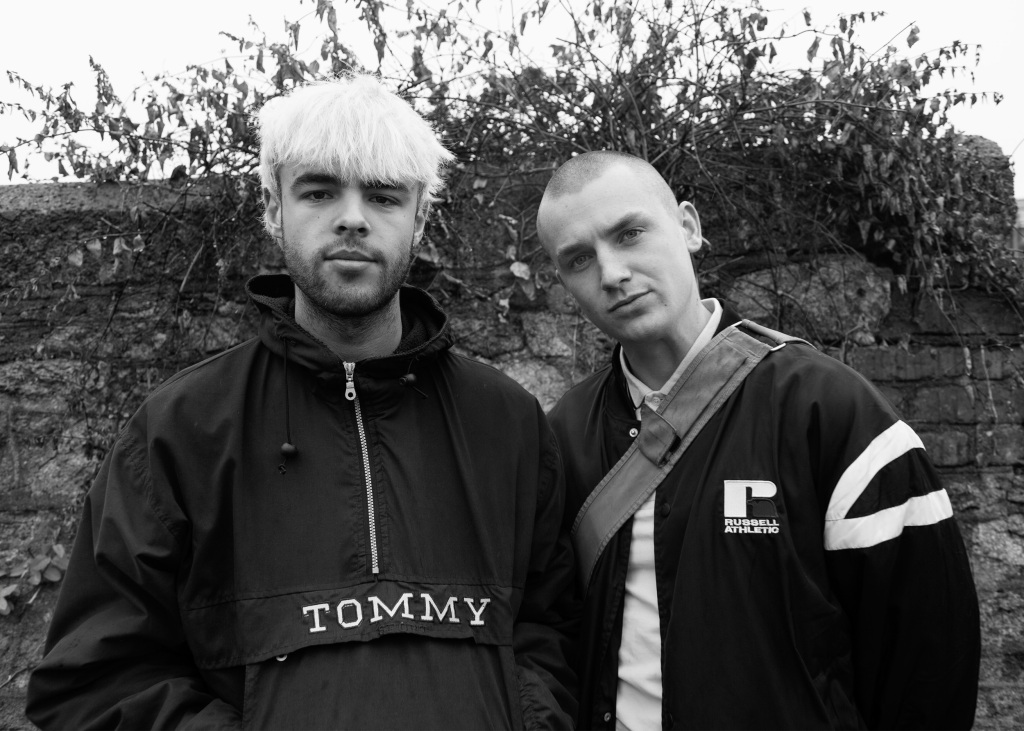
“That’s what the whole thing behind the Malaki thing is, messenger is what the name means, so I’m always trying to spread a message while whilst also providing some support through the music which was definitely seen within ‘Butterfly Boy’ where I was complaining about certain issues and also coming to terms of them.”
“I find myself repeating on them sometimes because you’re always constantly yearning for that escapism and it’s hard to find it sometimes…” he says, trailing off at the end, audibly showing some fatigue in his voice for the first time in our conversation.
“I find myself repeating on them sometimes because you’re always constantly yearning for that escapism and it’s hard to find it sometimes…”
Malaki
Quickly swooping in to show support for the same idea Matthew highlights ‘Butterfly Boy’ took “more of a conceptual approach” whereas the new ‘Cocoon’ project was “an opportunity experiment and try out different styles”.
Regardless of these different approaches one thing that remains the same throughout Malaki’s work is his penchant for grounding his art in relatable and at times tangible, everyday imagery.
Inspired by the likes of Mike Skinner who on the surface was soundtracking a generation’s journey through busy kebab shops and torn up betting slips in the bookies, there were always an added layer of depth to the relatable quips.

In ‘Butterfly Boy’ it was the clink of coins falling down as his ticket was dispensed as he used the bus on ’46A’ as a literal vehicle to explore a broken heart. In the Cocoon project he’s gone a step further manifesting this connection with imagery in a more permanent way.
“Do you know the way we get a different artist [To create imagery] for each track on the cocoon project? So for the last one I think we are going to get a tattoo for the last cover art. So the tattoo artist will be the last artist”, Malaki explains.
Getting a tattoo of what will become the final artwork to his project is bold to say the least, but it’s what we’ve come to expect from Malaki. His art gives him agency to share the messages close to his heart and
“Like I definitely think we are still trying to find a sound, trying to find something that helps put across the message of the music as efficiently as possible”, Matthew tells me.
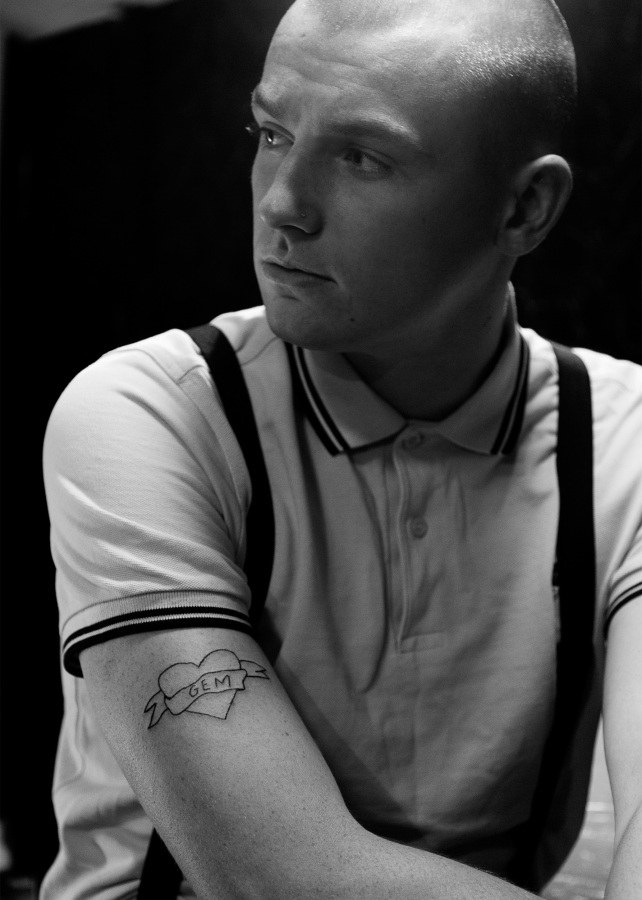
What is certainly efficient is Malaki’s rise from total obscurity to a bona fide and much welcomed addition to the Irish music community. It was just 13 months ago he graced our Someplace Else stage at Forbidden Fruit, delivering a now typically passionate performance where all felt the reverberations around the grounds of Kilmainham. In music, 13 months can be both a long and short time, flavours of the month can fade away and one fad is replaced by the next or lasting imprints can be made and Malaki most certainly falls into the latter category. Here’s to the next 13 months!

